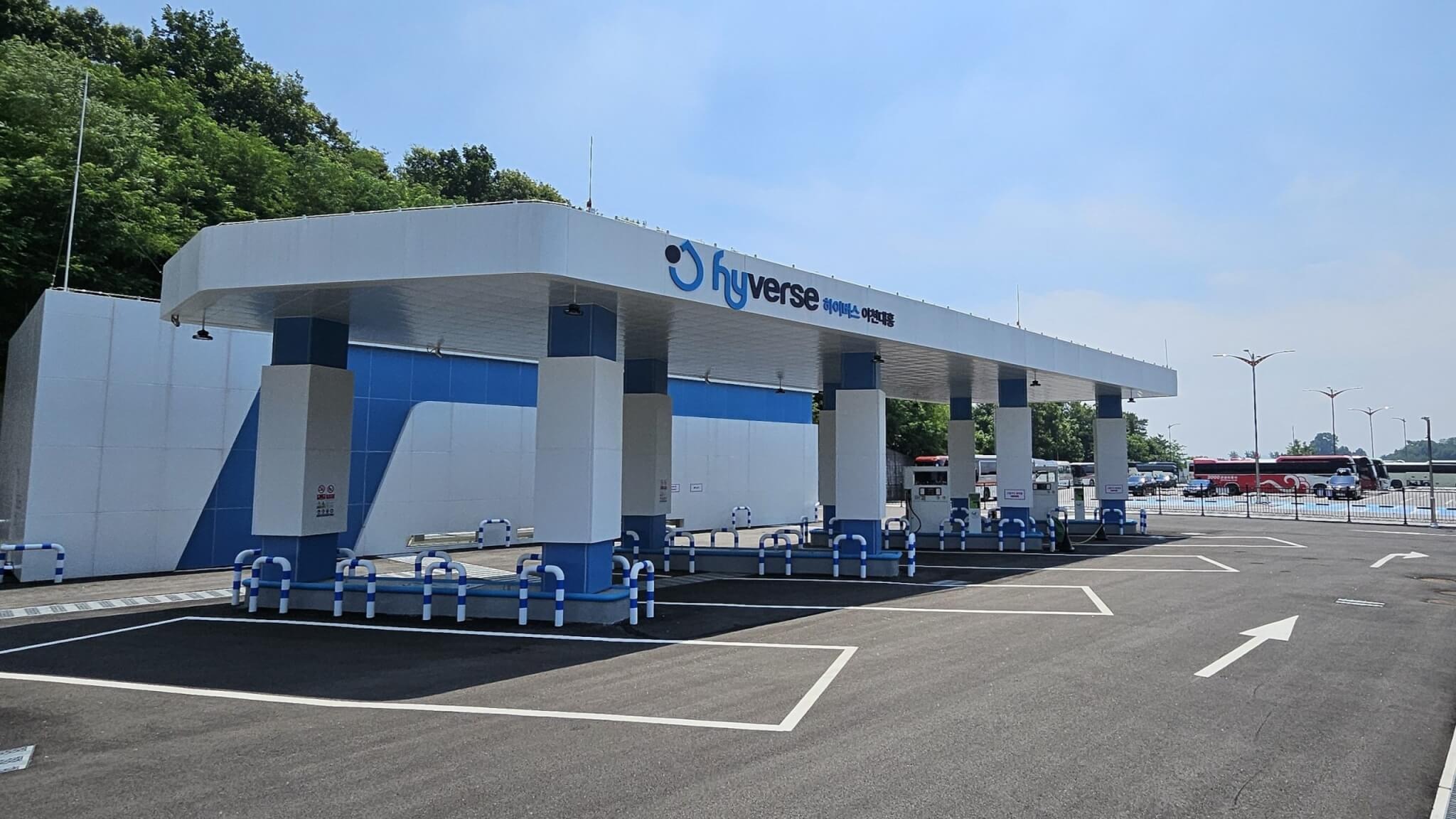SK Plug Hyverse Completes Liquid Hydrogen Refuelling Station

This joint venture between SK E&S and Plug Power has completed the construction of a state-of-the-art liquid hydrogen refuelling station designed to serve local commuter buses.
The newly established refuelling station in Icheon has advanced infrastructure including a four-tonne liquid hydrogen storage tank, a cryogenic pump, and two refuelling dispensers capable of dispensing up to 120 kilograms of hydrogen per hour.
This development is a significant step towards converting over 2,000 fossil-fuelled buses to hydrogen by 2026, beginning with servicing the hydrogen commuter bus fleet at SK Hynix’s Icheon Campus.
Construction of the station commenced in August 2023
Construction of the station commenced in August 2023 with the support of the South Korean government and completed its test run earlier this year. Hydrogen for the station will be supplied by SK E&S’s recently opened 30,000-tonne-per-year liquid hydrogen plant.
The initiative reflects SK Plug Hyverse’s commitment to advancing hydrogen technology and infrastructure in line with South Korea’s broader goals for carbon neutrality, sustainable energy and safety regulations. SK E&S’s Vice-President emphasised the suitability of liquid hydrogen refuelling stations for large commercial vehicles, predicting their rapid expansion alongside the increasing adoption of hydrogen buses.
Additionally, SK Plug Hyverse is in contract with the Nikkiso Clean Energy & Industrial Gas Group to build and maintain 24 more liquid hydrogen refuelling stations, further enhancing a safe hydrogen infrastructure across South Korea.
Hydrogen safety measures in South Korea
In response to the growing hydrogen infrastructure, South Korea has implemented stringent safety measures to ensure the secure operation of hydrogen refuelling stations. A notable initiative is the real-time hydrogen fuel station safety monitoring system launched by the Ministry of Trade, Industry, and Energy in collaboration with the Korea Gas Safety Corporation (KOGAS).
This system employs sensors and real-time monitoring to detect anomalies. It will promptly dispatch technicians to address potential issues, largely reducing the risk of accidents and enhancing the overall safety of hydrogen refuelling operations.
All such measures underscore South Korea’s proactive approach to ensuring the safety and reliability of its hydrogen infrastructure as it continues to expand its commitment to clean energy and carbon neutrality.

